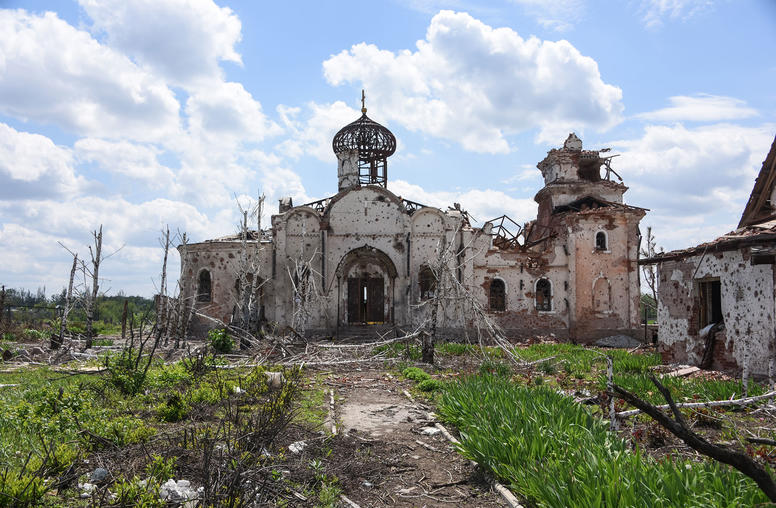 Ukraine
Ukraine
Today, Ukraine is fighting to save its young democracy against an unprovoked and unjustified Russian invasion. Long plagued by corruption and a weak rule of law and traditionally separated by language and religion, Ukrainians have united in defense of their national sovereignty and, with international assistance and support, managed to stifle early Russian military advances. But to stave off Russian aggression in the long term — as well as rebuild in the aftermath — Ukraine will need to maintain this unity. USIP provides analysis and support for policies that can help sustain Ukrainian democracy in the face of Russia’s invasion and facilitate the dialogue and diplomacy that will be required to ultimately defeat it.
Read more about the current situation in Ukraine
Featured Publications

China’s Dilemmas Deepen as North Korea Enters Ukraine War
Until late October, the big questions about China’s role in the Ukraine conflict centered around whether Beijing would choose to expand its support for Russia to include lethal aid, or if it might engage in more active peacemaking to end the conflict. Then, on November 4, the Pentagon confirmed that North Korea sent more than 10,000 troops to Russia’s Kursk oblast, where Ukraine had captured some territory earlier this year. Days later, the State Department confirmed that North Korean soldiers had begun fighting Ukrainian troops.

Australia’s Strategic Thinking on the War in Ukraine, NATO, and Indo-Pacific Security
Russia’s war against Ukraine has spurred closer cooperation between Euro-Atlantic and Indo-Pacific states and organizations, particularly Australia and NATO, signaling a deepening of ties that could have long-term benefits for global security. Over the long term, writes security expert Gorana Grgić, such alignment is crucial for signaling to potential aggressors that global coalitions are prepared to respond. This report analyzes Australia’s response in order to examine Canberra’s strategic thinking with respect to cross-theater cooperation, and it offers recommendations for US, NATO, and Australian policymakers.

How Ukraine is Navigating Russia’s Weaponization of Religion
Since 2014, Ukraine has been trying to repel escalating Russian aggression. But while Russia is a much larger country, with far more weaponry and manpower, their efforts to undermine Ukrainian state sovereignty extend far beyond armed combat. The Kremlin has used its close ties to the Russian Orthodox Church (ROC) to weaponize religion in favor of Russian interests.
Current Projects

The Current Situation in Ukraine
Russia’s massive assault on an independent Ukraine menaces not only Eastern Europe, but the human effort, since World War II, to build global peace through the international rule of law. USIP provides analysis and support for policies that can help sustain the democracy, dialogue and diplomacy that will be required to ultimately defeat this threat.

Religion and Conflict Country Profiles
USIP’s Religion, Peace and Conflict Country Profiles (RPACCs) are concise analytic overviews of the religious landscape in countries at risk of, currently experiencing or recovering from violent conflict. RPACCs are intended to be used primarily by policymakers and practitioners looking to develop rapid familiarity with the nature and status of religion in a given country of interest as well as to understand how religion intersects with conflict and peace dynamics. The RPACC series is an outgrowth of USIP’s previous work on Religious Landscape Mapping in Conflict-Affected States.